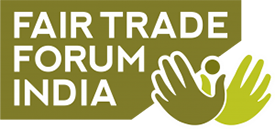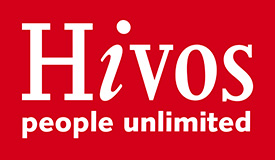

This Fair Trade Fortnight let us support our farmers for their hard work.
The hard work of our farmers is the reason that most of us have food on our table every day.
What is Fair Trade?
Fair Trade is a trading partnership, based on dialogue, transparency and respect, that seeks greater equity in trade. It contributes to sustainable development by offering better trading conditions to, and securing the rights of marginalized producers and workers. Fair Trade offers small producers the power to negotiate and the consumer a powerful way to participate in livelihood enhancement of the producers through their everyday buying.
When is Fair Trade Fortnight in 2020?
Incidentally we observe Fair Trade Fortnight from 24th February to 8th March.
You may wonder what is Fair Trade Fortnight? For 2 weeks each year thousands of individuals, companies and groups across the UK come together to share the stories of the people who grow our food and drink and who grow the cotton in our clothes, people who are often exploited and underpaid.
IRFT plays a stewardship role in propagating the principles of Fair Trade.
Let's spread the word that we can offer real support to our Farmers by choosing to respect Fairness in Trade.
UNDERSTANDING FAIR TRADE
Fair Trade is a trading partnership, based on dialogue, transparency and respect, that seeks greater equity in trade. It contributes to sustainable development by offering better trading conditions to, and securing the rights of marginalized producers and workers. Fair Trade organizations (backed by consumers) are engaged actively in supporting producers, raising awareness and in campaigning for changes in the rules and practice of conventional trade. Now that’s fair.
Fair Trade aims to give disadvantaged small producers and workers more control over their own lives. It addresses the injustices of insufficient income for a decent living and insufficient market access by guaranteeing that producers receive fair terms of trade and fair prices or wages. Most importantly, Fair Trade offers small producers the power to negotiate and the consumer a powerful way to participate in livelihood enhancement of the producers through their everyday buying.
FAIR TRADE PRINCIPLES
Creating Opportunities for Economically Disadvantaged Producers:
Fair Trade is a strategy for poverty alleviation and sustainable development. Its purpose is to create opportunities for producers who have been economically disadvantaged or marginalized by the conventional trading system.
Transparency and Accountability:
Fair Trade involves transparent management and commercial relations to deal fairly and respectfully with trading partners.
Capacity Building:
Fair Trade is a means to develop producers' independence. Fair Trade relationships provide continuity, during which producers and their marketing organizations can improve their management skills and their access to new markets.
Promoting Fair Trade:
Fair Trade Organizations raise awareness of Fair Trade and the possibility of greater justice in world trade. They provide their customers with information about the organization, the products, and in what conditions they are made. They use honest advertising and marketing techniques and aim for the highest standards in product quality and packing.
Payment of a Fair Price:
A fair price in the regional or local context is one that has been agreed through dialogue and participation. It covers not only the costs of production but enables production which is socially just and environmentally sound. It provides fair pay to the producers and considers the principle of equal pay for equal work by women and men. Fair Traders ensure prompt payment to their partners and, whenever possible, help producers with access to pre-harvest or pre-production financing.
Gender Equity:
Fair Trade means that women's work is properly valued and rewarded. Women are always paid for their contribution to the production process and are empowered in their organizations.
Working Conditions:
Fair Trade means a safe and healthy working environment for producers. The participation of children (if any) does not adversely affect their well-being, security, educational requirements and need for play and conforms to the UN Convention on the Rights of the Child as well as the law and norms in the local context.
Child Labour:
Fair Trade Organizations respect the UN Convention on the Rights of the Child, as well as local laws and social norms to ensure that the participation of children in production processes of fairly traded articles (if any) does not adversely affect their well-being, security, educational requirements and need for play. Organizations working directly with informally organized producers disclose the involvement of children in production.
The Environment:
Fair Trade actively encourages better environmental practices and the application of responsible methods of production.
Trade Relations:
Fair Trade Organizations trade with concern for the social, economic and environmental well-being of marginalized small producers and do not maximize profit at their expense. They maintain long-term relationships based on solidarity, trust and mutual respect that contribute to the promotion and growth of Fair Trade. An interest free pre-payment of at least 50% is made if requested.
THE ROLE OF IRFT IN FAIR TRADE
• Plays a stewardship role in propagating the principles of Fair Trade.
• Promotes the principles of fair trade to all stakeholders along the supply chain through Capacity Building and long-term process Training.
• Will steer all efforts to mainstream Fair Trade in India and help further build partnerships of a wider fraternity in the larger interests of a unified, credible Fair Trade movement in India and beyond.
• Develops Communication strategies to address different fora/ events/fraternity meets on Fair Trade, working in partnership with Fair Trade networks like FTFI, and its partners as a Group/Body, unified as Fair Trade change agents.
• Takes a lead role in Fair Trade awareness at all forums and represent all Fair Trade partners, equally and fairly in the interest of a unified Fair Trade movement in India. IRFT assumes responsibility for creating plausible messaging with conviction, aimed at consumers to ensure that Fair Trade buying is not just an emotional buy, bordering on a fad or whim, but a long-term commitment to Fair Trade products.
• Will continuously evolve simple acceptable and credible messaging to ensure a common man understanding of ‘Fairness in Trade and what it represents and how it affects his decision to make a change in buying.
• IRFT will ensure that its Community Business Programme (CBP) and Ethical Business Programme (EBP) will be woven into the Fair-Trade principles and its propogation at every step of the way, thereby addressing wider areas of awareness, through each of our stakeholders.
• Is working harmoniously with funding organizations to ensure clear cut roles, responsibilities and deliveries as committed, and meet deadlines set by the projects.
EUROPEAN UNION INTERVENTIONS
| ORGANIZATION | TRAININGS / SPECIAL PROJECTS | TARGET GROUPS |
|---|---|---|
 UK and FAKT, Germany 
|
SARTHEE Developing effective pro poor business counseling services in India |
Enhancing the technical and management capacity of the Business Development Sector (BDS) providers in handicraft sub sectors to develop high quality business counseling service to help Micro and small enterprises to develop good business skills in handicrafts sector better management of resources and reach out to markets for sustainable business. |
 UK and FAKT, Germany |
PROFIT Making Trade work for the poor |
Potential consumers i.e. the middle class, the media, key decision makers, academics. Stakeholders to facilitate a distribution and retail network for the sale of Fair Trade products. |
  
|
PROSUSTAIN Promoting Fair Trade & Sustainable Consumption in India |
Consumers, Schools & Colleges, NGOs & Corporates |
   
|
A2F Access To Finance For Sustainable Production & Consumption of Agribusiness MSMES in India |
Producer Group Companies |